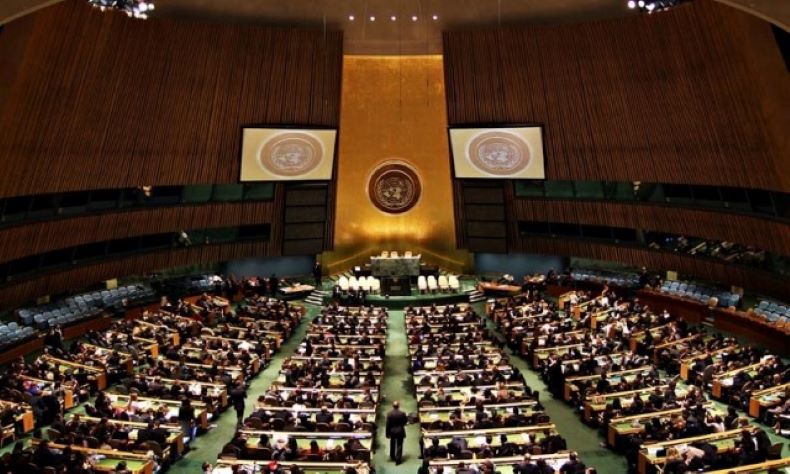UNITED NATIONS, Sep 28 — A heated exchange unfolded at the United Nations on Friday night as Pakistani and Indian representatives sparred over Kashmir and terrorism during the 79th session of the UN General Assembly.
In a forceful address earlier in the day, Pakistan’s Prime Minister Shehbaz Sharif condemned India’s “brutal coercion and oppression” in occupied Kashmir and accused New Delhi of supporting terrorism against Pakistan, particularly through groups like the Tehrik-i-Taliban Pakistan (TTP).
Responding sharply, Indian delegate Bhavika Mangalanandan, a first secretary in India’s UN Mission, dismissed the allegations, asserting that Jammu and Kashmir is an internal matter and accusing Pakistan of cross-border terrorism. She also took aim at Pakistan’s internal issues.
Pakistan’s representative, Muhammad Faheem, countered the Indian narrative, reiterating that Jammu and Kashmir is an internationally recognized disputed territory. He emphasized that it has “never been, nor will ever be, a part of India.” Faheem highlighted that the UN Security Council has called for a free and impartial plebiscite to allow the Kashmiri people to decide their future, a commitment he accused India of ignoring.
Faheem condemned the ongoing “brutal and oppressive occupation” in Kashmir, which he said intensified following India’s controversial actions on August 5, 2019. He accused India of human rights violations, including extrajudicial killings, media blackouts, and a military siege affecting over 8 million Kashmiris.
Addressing the terrorism allegations, Faheem turned the accusation back on India, claiming it has been the primary perpetrator of terrorism in the region, citing India’s alleged support for the TTP and the Balochistan Liberation Army (BLA), groups responsible for attacks on Pakistani soil. He also mentioned the case of Kulbhushan Jadhav, an Indian naval officer convicted of espionage and terrorism in Pakistan, as evidence of India’s state-sponsored terrorism.
Faheem further criticized India’s treatment of its own minorities, particularly Muslims, accusing the BJP-RSS government of imposing a reign of fear and violence, marked by incidents of lynching, discriminatory laws, and destruction of religious sites.
He concluded with a call for India to end its “state-sponsored terrorism,” cease its “illegal occupation” of Jammu and Kashmir, and fulfill its international obligations.





